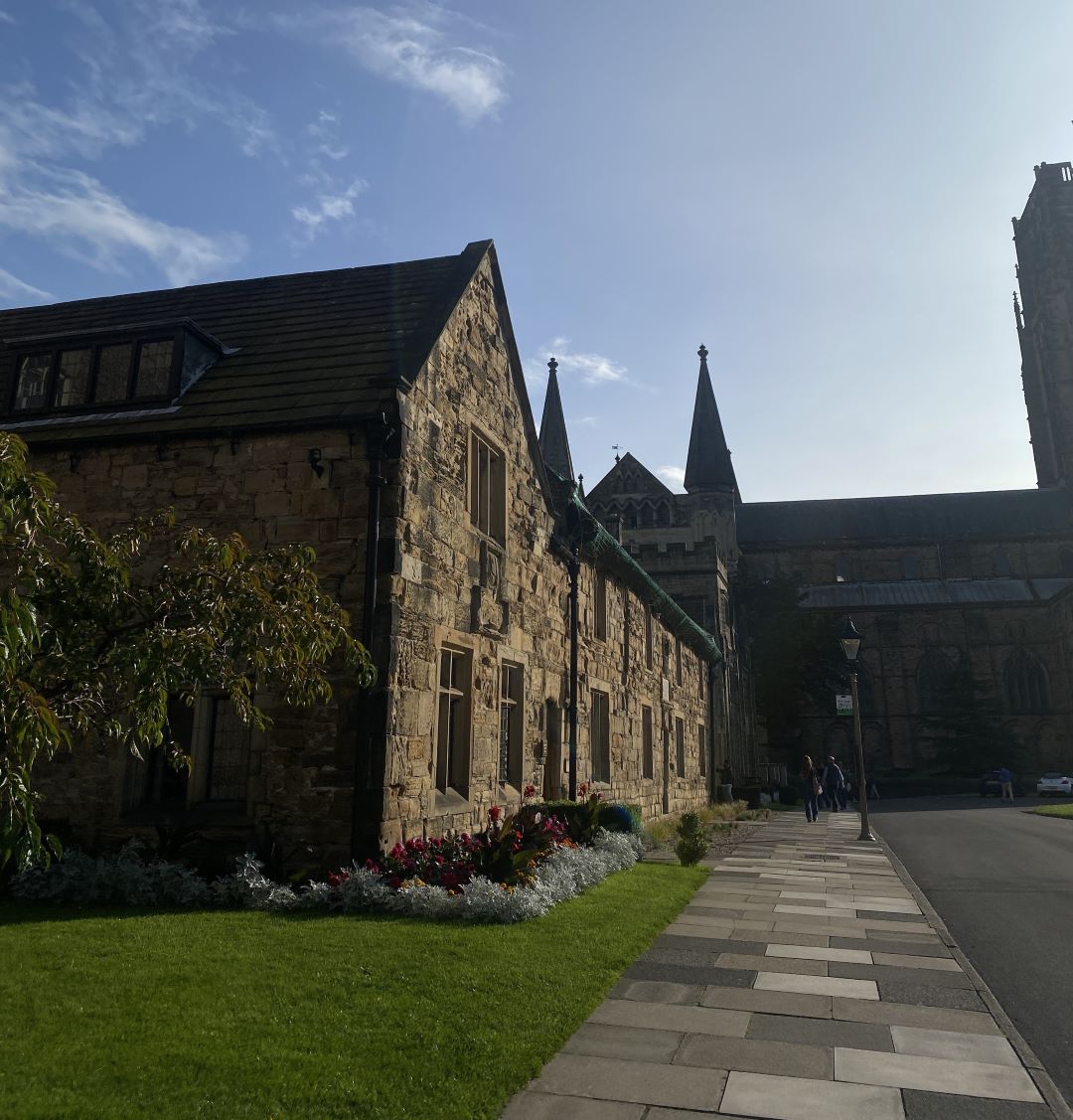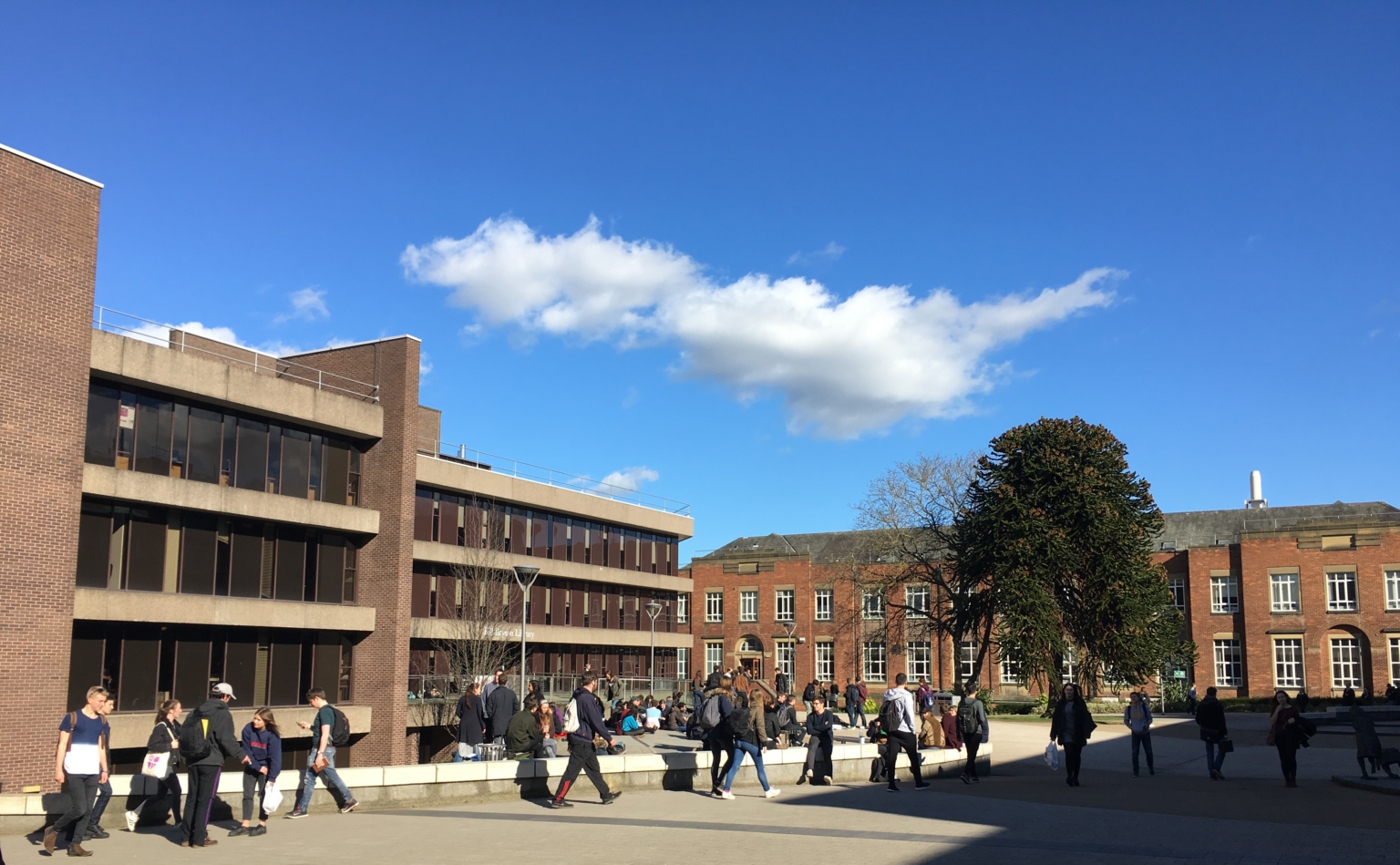Tell us about your studies
I achieved my MSc in Behavioural Science at Durham in 2022 and I’m now studying for my PhD which focuses on moral disagreements. The goal is to explore how people react and behave when they come across someone who holds different moral positions to them on issues such as abortion and transgender rights. I was thrilled to be awarded the Durham Doctoral Studentship Peace & Trust Scholarship (DDS PT scholarship).
I’m investigating when people are able to have a productive and respectful discussion about such disagreements and when they get abusive or avoidant. Specifically, what psychological as well as physiological processes underpin these different responses.
I am hoping this project will shed light on future interventions to bridge the gap between people on both sides of a moral disagreement.
Congratulations on being awarded the DDS PT. What does this scholarship mean to you?
I would like to go one step back first; it meant a lot to me to even be able to submit an application for this scholarship. I was filled with self-doubt about my abilities to take on a PhD. But I have amazing supervisors, their belief in me and my project and their constant support drove me to apply for this scholarship. While the application process was challenging, I really enjoyed developing my research ideas and collaborating with my supervisors.
So, then being awarded this scholarship felt validating in many ways. First and foremost, it made me realise I am capable of carrying out this project. It highlighted the importance of teamwork and having a good group of mentors because it was a team effort that made this application successful. I’m also inspired by the other three students who were awarded this scholarship. I feel proud to be in the same cohort as them and I’m excited to see the impact of our projects on the world.
How did you get into this field?
I’ve always been interested in understanding how people think and what drives their opinions, judgements and behaviour. I’m particularly fascinated by how people think about ethics and morals in their everyday lives, how these morals become guiding principles of their lives and how that influences how they interact with the world. These interests have drawn me to the area of moral psychology, and I have been lucky enough to be able to pursue these interests!
Why are you so passionate about your project?
I have to research and understand so many different areas of psychology such as emotions and emotion regulation, intergroup contact, human physiology and so on. This makes it very interesting because I get to learn new things every day and think about how all pieces of the puzzle fit together.
Additionally, a lot of research in the field of moral psychology focuses on how people make moral judgements or how they react when their moral beliefs are challenged. But what is less studied is how do people, if at all, resolve moral disagreements? I think it’s important to investigate these questions, especially when such moral disagreements stall the advancement of human rights of some vulnerable groups.
How will your research influence the Department of Psychology?
My research project is one of the first in the Department to focus on interpersonal morality. Also, it’s one of the first studies in the field of moral psychology to take an interdisciplinary approach that incorporates physiological measures along with self-report measures. This also means that sometimes it does feel like entering unchartered waters, but at the same time, it’s really exciting to take a novel approach and see what results we’ll find!

Tell us about a day in the life of a student in the Department of Psychology
A large portion of my job is desk work, but there’s still a lot of variety within that. For example, I read different articles, design studies, analyse data, and write, including this blog! Apart from being a professional ‘screen starer’, I’m also part of different research groups which give me a good opportunity to keep up with different areas of research and learn from other academics. I also help run studies in my supervisor’s physio lab, where I hook participants up with different physio sensors such as ECG sensors to measure heart rate.
But all of this work is balanced by a very fun and wholesome environment in the postgrad office where my colleagues and I organise many social activities. So, while staring at my screen is a constant, other aspects are everchanging which keeps things interesting!
Learn more about Bhakti Khati’s research.
Discover more
Our Department of Psychology prides itself on being a collegiate and welcoming department, committed to success for all who work here. Through dedicated teaching sessions, an optional placement module, external speakers and even an employability retreat – we actively prepare students for working life. We are proud to ranked in the Top 10 Psychology departments in the UK by The Complete University Guide 2022.
Feeling inspired? Visit our Psychology webpages to learn more about our postgraduate and undergraduate programmes.








